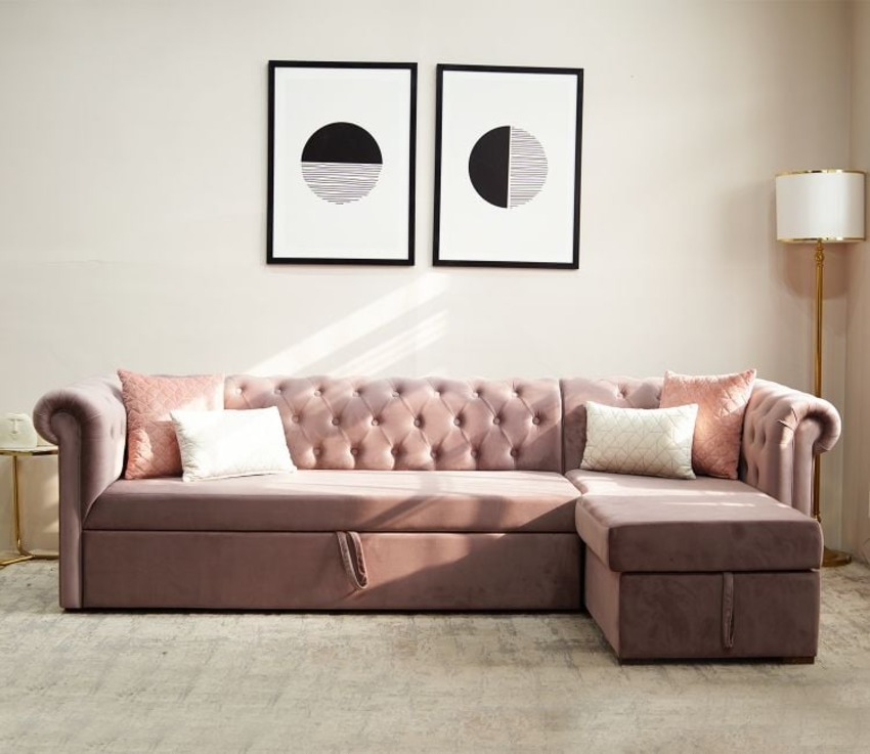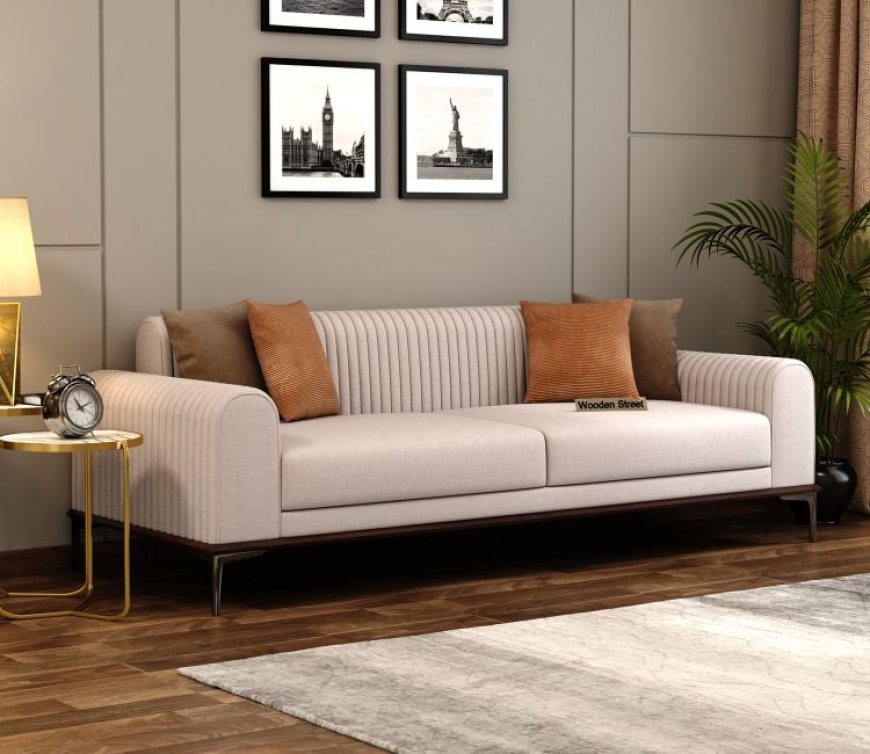How to Style Your Living Room with a Sofa Set

A well-styled living room brings harmony, comfort, and elegance to your home. One of the central elements of this space is the seating area, which sets the tone for your room's aesthetics and functionality. With thoughtful styling, even a simple layout can turn into a cozy and sophisticated haven. Here's a comprehensive guide on how to style your living room to perfection with a sofa set.
1. Define the Layout First
Before bringing in furniture or décor, consider your room’s layout. The arrangement of doors, windows, light sources, and open areas will influence where you place the seating. Ask yourself:
-
Do you want a symmetrical or an open-plan design?
-
Where is the focal point — a TV unit, a fireplace, or a coffee table?
-
Will your space accommodate a U-shape, L-shape, or parallel seating?
Once you understand your spatial constraints and options, positioning your furniture becomes much easier.

2. Choose the Right Size and Shape
The size of your seating should match the dimensions of your room. An oversized couch in a small room can make the space feel cramped, while a tiny set in a large room may feel awkward or disconnected.
Popular Configurations:
-
L-shape sofas: Great for corners and open layouts
-
U-shape setups: Ideal for larger rooms and family gatherings
-
Loveseats with armchairs: Perfect for small or formal living rooms
Ensure there’s enough room to move around freely without bumping into furniture.
3. Select a Complementary Color Palette
Color plays a powerful role in tying your living room together. When styling around your seating, consider choosing colors that align with your desired theme:
-
Neutral tones (beige, grey, cream): Create a calming and timeless atmosphere.
-
Bold colors (navy, emerald, maroon): Add drama and a luxurious touch.
-
Pastels (blush pink, mint green, light blue): Offer a modern and soft vibe.
Match your seating fabric with cushions, curtains, and rugs to maintain visual harmony.
4. Incorporate Accent Furniture
Your seating doesn’t stand alone — balance it with accent pieces like:
-
Coffee tables or ottomans in wood, glass, or metal
-
Side tables with lamps or books
-
Accent chairs for additional seating and style
-
Console tables behind the sofa for added depth
These pieces should blend well with the primary seating and provide both utility and visual interest.
5. Use Rugs to Anchor the Space
A rug helps define the seating zone and adds warmth underfoot. Choose a rug large enough that it extends at least halfway under the furniture legs. Popular materials include wool, jute, and synthetic blends, depending on your usage and budget.
Match the rug’s texture and pattern with your overall color scheme to create a unified look.
6. Add Layers with Cushions and Throws
Cushions and throws are the easiest way to enhance comfort and style. Opt for:
-
Mix-and-match patterns: Florals, geometrics, stripes
-
Various textures: Velvet, cotton, linen, knits
-
Different sizes: Use both square and rectangular pillows
A throw casually draped over the armrest or backrest adds an inviting, cozy touch.
7. Style with Lighting for Mood and Function
Lighting is a key player in creating ambiance. Combine different types of lighting to add dimension to your living room:
-
Overhead lights: Chandeliers or pendant lights for general lighting
-
Floor lamps: Near the seating area for reading or accent light
-
Table lamps: On side tables to highlight corners or décor
Use warm white bulbs to make the space feel more relaxing and intimate.
8. Bring Life with Greenery and Decor
Plants introduce freshness and a pop of color. Place them near natural light sources, on side tables, or in corners. Some popular indoor plants include:
-
Snake Plant
-
Fiddle Leaf Fig
-
Areca Palm
-
Pothos
Complement with decorative items like:
-
Vases and sculptures
-
Artworks and wall hangings
-
Candles and books
Don’t overdo it — let each piece breathe while still adding character.
9. Choose Curtains that Frame the Space
Window treatments can make or break a room's look. For a cohesive appearance:
-
Match curtains with cushion or rug colors
-
Choose floor-length drapes for elegance
-
Go for light fabrics like linen or cotton for a breezy feel
-
Consider blackout curtains if the room gets too much sunlight
Curtains also help control privacy and light — both essential for living rooms.

10. Keep It Clutter-Free and Functional
Styling isn’t just about aesthetics. Ensure that your room remains functional and clutter-free. Use:
-
Storage ottomans or coffee tables with compartments
-
Wall shelves for books and décor
-
Baskets for magazines, throws, or toys
Always leave enough walking space — ideally 18 inches between the sofa and coffee table — to maintain easy movement.
11. Personalize the Space
Finally, add your personal stamp to the room. Think:
-
Framed photos of family or travel
-
Your favorite artwork or painting
-
DIY craft items or souvenirs from trips
This makes your space feel uniquely yours and adds warmth beyond just style.
Conclusion
Styling your living room isn’t just about following trends — it’s about creating a space that reflects your lifestyle, tastes, and comfort. By thoughtfully selecting your layout, colors, furnishings, and décor, you can make your living room feel balanced, inviting, and beautiful.
Whether you have a minimalist or a maximalist aesthetic, the right sofa set can be the hero piece that brings it all together.

 Kailashverma123
Kailashverma123